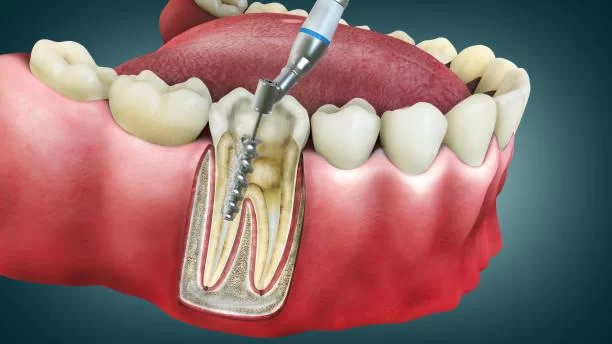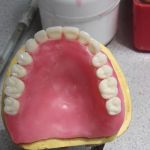
- 1. Causes of Bad Breath
- 2. Tips for Preventing Bad Breath
- 3. Importance of Oral Hygiene for Fresh Breath
- 4. Foods and Habits That Help Prevent Bad Breath
- 5. When to See a Dentist for Bad Breath
1. Causes of Bad Breath
Bad breath, medically known as halitosis, can occur for many reasons. Understanding these causes is the first step in preventing and managing this common issue. The primary cause of bad breath is poor oral hygiene, which allows food particles to remain in the mouth, causing bacteria to produce unpleasant odors.
Other causes of bad breath include dry mouth (xerostomia), smoking, certain foods such as garlic or onions, and underlying health issues like gum disease or infections. Even conditions like diabetes, liver disease, and kidney failure can contribute to halitosis. For some, bad breath can be linked to a digestive problem or acid reflux, so it's essential to identify the root cause for effective prevention.
2. Tips for Preventing Bad Breath
While it may seem like an embarrassing problem, bad breath is usually preventable. There are several strategies you can implement to ensure your breath stays fresh:
- Brush and floss regularly: This is the foundation of good oral hygiene. Brushing your teeth at least twice a day and flossing once daily helps remove food particles and plaque that contribute to bad breath.
- Stay hydrated: Drinking water throughout the day helps prevent dry mouth, which can lead to bad breath. Aim to drink at least eight glasses of water a day.
- Use mouthwash: Mouthwash not only freshens your breath but also helps kill bacteria in your mouth. Choose a mouthwash that fights bacteria for longer-lasting freshness.
3. Importance of Oral Hygiene for Fresh Breath
Proper oral hygiene is key to preventing bad breath. Without it, bacteria will thrive in the mouth, leading to the formation of unpleasant odors. Brushing your teeth with fluoride toothpaste and using an antimicrobial mouthwash can significantly reduce the number of odor-causing bacteria.
Additionally, don't forget to clean your tongue! The tongue often harbors bacteria and food particles that contribute to bad breath. Use a tongue scraper or the back of your toothbrush to gently clean your tongue every time you brush your teeth.
4. Foods and Habits That Help Prevent Bad Breath
Some foods can actually help freshen your breath and promote oral health. For instance, crunchy vegetables like carrots and celery help clean your teeth naturally and stimulate saliva production, which can help neutralize odors. Additionally, foods like apples, green tea, and yogurt contain compounds that can fight bad breath-causing bacteria.
Avoiding or reducing consumption of certain foods such as garlic, onions, and coffee can also improve your breath. These foods tend to have strong odors that linger in the mouth long after eating.
5. When to See a Dentist for Bad Breath
If you've tried various methods of preventing bad breath but find that it persists, it may be time to see a dentist. Chronic bad breath can be a sign of underlying oral health issues such as gum disease, tooth decay, or a more serious health condition. A dentist can help diagnose the cause and provide treatment options to help restore fresh breath.
Regular dental check-ups are essential for maintaining oral health and preventing issues that lead to bad breath. At Dentistry Toothtruth, we offer a wide range of dental services to help ensure your smile stays fresh and healthy. Visit us for the best advice, products, and services tailored to your needs.







 Springfield Dentures and Implants4.0 (69 review)
Springfield Dentures and Implants4.0 (69 review) Affordable Dentures & Implants4.0 (443 review)
Affordable Dentures & Implants4.0 (443 review) Endodontic & Periodontic Associates, Ltd.4.0 (90 review)
Endodontic & Periodontic Associates, Ltd.4.0 (90 review) McMurphy Pediatric Dentistry4.0 (135 review)
McMurphy Pediatric Dentistry4.0 (135 review) Innovative Dentistry of Valley Forge5.0 (228 review)
Innovative Dentistry of Valley Forge5.0 (228 review) Greenway Family Dental4.0 (137 review)
Greenway Family Dental4.0 (137 review) The Importance of Oral Health Education During Pregnancy for a Healthy Pregnancy
The Importance of Oral Health Education During Pregnancy for a Healthy Pregnancy Best Tips for Brushing Your Teeth Properly for Healthy Gums: Essential Techniques for Oral Health
Best Tips for Brushing Your Teeth Properly for Healthy Gums: Essential Techniques for Oral Health Why Skipping Dental Checkups Can Lead to Bigger Oral Health Problems
Why Skipping Dental Checkups Can Lead to Bigger Oral Health Problems Advantages of Porcelain Dental Restorations
Advantages of Porcelain Dental Restorations How Can Diabetes Cause Tooth and Gum Problems? Preventing and Managing Oral Health Issues
How Can Diabetes Cause Tooth and Gum Problems? Preventing and Managing Oral Health Issues Healthy Habits for Promoting Good Oral Health and Hygiene: Tips for a Healthy Smile
Healthy Habits for Promoting Good Oral Health and Hygiene: Tips for a Healthy Smile